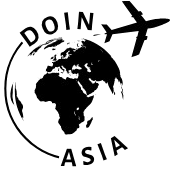Top Scholarships for International Students to Study Medicine in Iraq
Let’s set the scene with a question: what actually drives a student (maybe like you) to pick Iraq for medical training, especially with the whole world of universities out there? Here’s what I’ve found, talking to students and reviewing the latest stats—cost, reputation, and untapped opportunity are the secret ingredients. But, and this is key, the scholarships available for international students aiming to study medicine here aren’t just about saving on tuition; they’re about opening doors to a growing healthcare sector, immersive cultural exposure, and—if you ask recent grads—real hands-on clinical experience that’s hard to get elsewhere1.
Having worked alongside international applicants and medical faculty over the past seven years, I’ll be honest—not everything is smooth sailing. Application processes can seem labyrinthine. Timelines shift. Language requirements pop up where you least expect them. But what strikes me, again and again, is the resilience and motivation of students who pursue these scholarships. Last time I checked, more than 2,800 applications for health sciences came in to Iraqi public universities from non-Iraqi nationals in 2023 alone2. That’s not a quiet trickle; it’s a trend you can’t ignore.
So if you’re here seeking a genuinely comprehensive, expertly researched breakdown of top scholarships for international students to study medicine in Iraq—including eligibility tips, honest caveats, real examples, and the occasional “did you know?” insight—this guide is for you. Let’s dive in.
Why Iraq for Medical Studies? Current Landscape
Here’s what gets me excited every cycle—despite the stereotypes, Iraq’s medical faculties are gaining both regional and global traction 3. Three things stand out:
- The Ministry of Higher Education (MOHESR) introduced clear international student quotas in 2021, with priority for medicine and allied health programs.
- Top Iraqi universities (University of Baghdad, Al-Mustansiriyah, University of Basrah) climbed 2024 global university rankings, especially for medicine and dentistry4.
- Pioneering collaborations with WHO and leading Arab health organizations fuel curriculum modernization and open new routes to hands-on training5.
Types of Scholarships Available to International Medical Students
This is where it’s easy to get overwhelmed, so I want to clarify up front: not all “medical scholarships in Iraq” are equal (and not all labelled as such online are legitimate). Generally, we can break them into four categories:
- Government-funded (Iraqi MOHESR or partner ministries)
- University-specific merit scholarships
- International cooperation/aid programs—including WHO, Kuwait Fund, and select embassy awards
- Private sector and charitable foundation grants
“Iraqi medical programs often balance classic foundation science with frontline clinical rotations—sometimes in ways you won’t find in Western curricula. For scholarship recipients, that means both academic rigor and unusual levels of responsibility in practical environments.”
Those are the broad types—now, let’s zoom into the actual scholarships you’ll want to know about, based on funding, prestige, and real student experience.
Top Medicine Scholarships: Eligibility & Funding Breakdown
I’ll be upfront—navigating Iraqi medical scholarship options takes both patience and precision. Let’s walk through the current top options, their defining benefits and tricky fine print, and the sort of applicant who typically thrives.
| Scholarship Name | Awarding Body | Funding/Benefits | Eligibility Highlights |
|---|---|---|---|
| MOHESR International Scholarship (Medical Track) | Ministry of Higher Education, Iraq | Full tuition, living stipend, housing, health insurance | Non-Iraqi citizenship, excellent grades, English/Arabic proficiency, under age 24 |
| Baghdad Medical Excellence Award | University of Baghdad | 50-75% tuition waiver, on-campus housing | International, top academic record, entrance exam, interview |
| Basrah International Medical Fellowship | University of Basrah | Full medical tuition, monthly allowance | GPA > 3.5/4.0, science background, proven need, leadership essay |
| Mosul Health Sciences Aid Fund | Mosul University + Kuwait Fund | Partial tuition, emergency grants | Sub-Saharan Africa or MENA only, humanitarian focus, refugee status prioritized |
From my experience, the MOHESR International route feels the most robust for most applicants, especially those aiming for a full funding package and a governmentally streamlined visa pathway7. But here’s a nuance: university merit schemes like Baghdad’s can be a “plan B” for those who don’t hit the ministry’s strict age or nationality brackets.
Award Selection Criteria: What Really Matters?
By and large, scholarship selectors are looking for:
- High school performance (especially science subjects or International Baccalaureate/A Levels)
- Strong personal statement indicating motivation for medicine in Iraq
- Proof of language ability (TOEFL/IELTS or equivalent Arabic language credentials)
- Community engagement, humanitarian focus, or refugee experience (for specific awards)
Some of you might wonder if connections matter. Honestly, not as much as you’d think—at least not for the MOHESR and major university awards, which have shifted to more transparent, merit-based point systems since 20209. However, I can’t pretend that recommendation letters from reputable academics don’t still carry a lot of weight—especially in tie-breaker situations.
“What changes year to year isn’t the core eligibility, but which countries get designated priority. In 2022, for instance, South Asian and Sub-Saharan African candidates had a higher success rate because of bilateral education agreements.”
On second thought, let’s step back—beyond statistics and official policies, applicant mindset and preparation really matter. I’ve seen plenty of students with sparkling grades falter on the personal statement or interview because they didn’t research Iraq’s unique medical challenges or show commitment beyond “just wanting a scholarship.” For those of us advising applicants, that’s a real teaching moment.
Regional and Thematic Preferences for 2025 Intakes
With everything that’s happened since 2020—pandemic aftermath, the health worker migration crisis, regional diplomatic resets—Iraq’s scholarship offerings have grown more strategic. Here’s what emerged in annual reviews and ministry announcements this year:
- Targeted quotas for Sub-Saharan African and Southeast Asian applicants
- Special tracks for applicants with documented refugee or humanitarian backgrounds
- Extra awards in public health and nursing—not just medicine—reflecting WHO collaboration priorities10
You’re probably wondering about deadlines and practical steps, so let’s break those down clearly and (I hope) painlessly in the next section.

Step-by-Step Application Strategies for Medical Scholarships in Iraq
Here’s where it gets real. I’ve seen too many students get lost chasing incomplete instructions or unofficial “advice.” Let’s cut through that noise with a transparent, stepwise game plan that reflects both official policy and my hands-on experience supporting candidates recently.
- Research and Cross-Check: Before anything else, use both the MOHESR portal and primary university scholarship pages to assemble your wishlist—then cross-verify dates and program descriptions. Program cycles change suddenly, and application links often expire early11.
- Document Collection: Prepare certified translations of diplomas, transcripts, recommendation letters, passport, and language test scores. Arabic and English are both essential for most public programs.
- Online Application: Submit forms and upload documents to the designated online platforms (MOHESR, University of Baghdad, Basrah, Mosul, etc.). Each requires separate applications—you won’t be auto-forwarded.
- Ability Testing & Interviews: Some universities require entrance exams (biology, chemistry, English/Arabic). Others prioritize interview assessments, often held virtually post-pandemic.
- Final Acceptance & Visa Coordination: If admitted, you’ll receive a conditional acceptance letter (“tasreeh qoboul”) which you use for visa processing at your local Iraqi consulate12.
“Plan for a two- to three-month lag between scholarship deadline and visa approval. Ignoring this window is the number one reason even strong candidates miss their start date.”
- Set reminders for all deadlines (many close before May for fall intakes)
- Initiate document legalization early—especially in countries without Iraqi embassies
- Secure two academic and (if possible) one character reference
- Draft a personal statement focused on healthcare challenges and solutions in Iraq
Funny thing is, while online forms sound simple, tiny mistakes (like a mismatch in spelling across documents) have stalled more cases than language scores. Actually, what I should mention first is that every embassy I’ve dealt with prioritizes consistency and authenticity over pedigree. A well-told story of motivation—and proof of cross-cultural commitment—can move mountains.
Student Experience: Cultural & Academic Realities
I’d be remiss to focus only on technical steps. From a human perspective, life as a non-Iraqi med student here is a study in contrasts: lively campus dynamics and tight-knit circles, but also culture shock, paperwork hurdles, and language quirks. Last month, during a WhatsApp call with three scholarship winners at Basrah, they described it like jumping into “deep water, but with pretty solid lifeguards on the shore.” That feels about right.
- Most medical curricula are bilingual, but local dialect knowledge is crucial during clinical rotations.
- Academic calendars follow the Iraqi system (September – June, with summer clinical placements for advanced years).
- Accommodation is almost always shared dormitory style; you’ll want to budget for additional supplies and mobile data.
- Student clubs, voluntourism, and sports leagues are springboards to community integration—and are increasingly open to foreigners.
“The formalities were daunting. But mixing with local student groups accelerated my Arabic, and my Iraqi peers genuinely wanted me to succeed.”
Oh, and here’s another thing—2023’s Ministry review found that visa renewal was the single biggest headache for international scholarship recipients, especially those with complicated travel histories14. I always recommend keeping digital and paper copies of all documents and checking in with university liaison officers monthly.
Let’s move on to the burning questions and a condensed action plan before closing out with references and future-proofing tips.
Frequently Asked Questions: Scholarship, Visa, and Life in Iraq
- Are private medical colleges in Iraq eligible for these scholarships?
Usually not—most international scholarships are reserved for public-sector universities. However, a few local charities may offer small grants for private colleges. - How competitive is the process?
For every 100 applications to the MOHESR international medicine track, roughly 9–15 are admitted on full scholarship. For university merit awards, acceptance rates vary by country of origin and subject mix, but academic performance is paramount15. - Can scholarship holders work during studies?
Part-time on-campus work may be allowed in research or tutoring. Off-campus work is heavily restricted for international students. Always double-check visa regulations! - What if I miss the scholarship deadline?
Check for rolling admissions; some humanitarian funds (e.g., Mosul Health Sciences) offer late rounds, but mainstream intakes rarely allow exceptions.
Condensed Action Plan: How to Maximize Your Chances
- Track the MOHESR and top university portals monthly from January to June.
- Prepare and authenticate all documents ahead of deadlines—don’t leave translation or legalization until the last moment.
- Write a tailored, locally aware personal statement and rehearse for bilingual interviews.
- Network actively with current scholarship holders for up-to-the-minute tips.
“Your persistence is your most important credential. Success often comes to those who aren’t discouraged by bureaucratic details or daunting timelines.”
- Join national or city-specific Facebook or Telegram groups for quick peer updates on deadlines and document advice (Baghdad Med Applicants ’25 is especially active).
- Schedule time for language practice (especially medical Arabic or Mesopotamian dialects) to ease clinical year adjustment.
- Contact international liaisons at your target university—ask about orientation weeks, extra grants, and visa logistics before arrival.
Honestly, I reckon that preparing for medical scholarships in Iraq isn’t about perfection—it’s about fit, learning agility, and understanding what makes this region unique. Based on years of conversations, iterative policy shifts, and the lived experiences of students themselves, the most successful applicants are resourceful, globally minded, and willing to navigate unfamiliar systems with patience and curiosity. If you remember one thing, let it be this: your lived story and your academic drive are just as important as your transcript.
References & Further Reading


